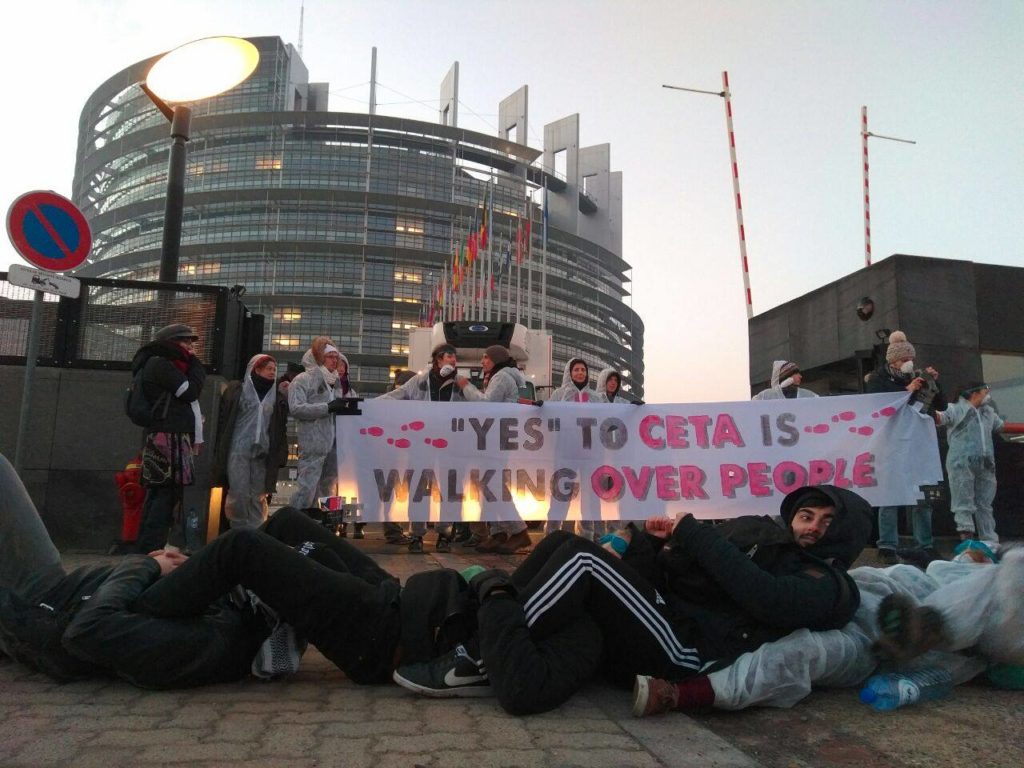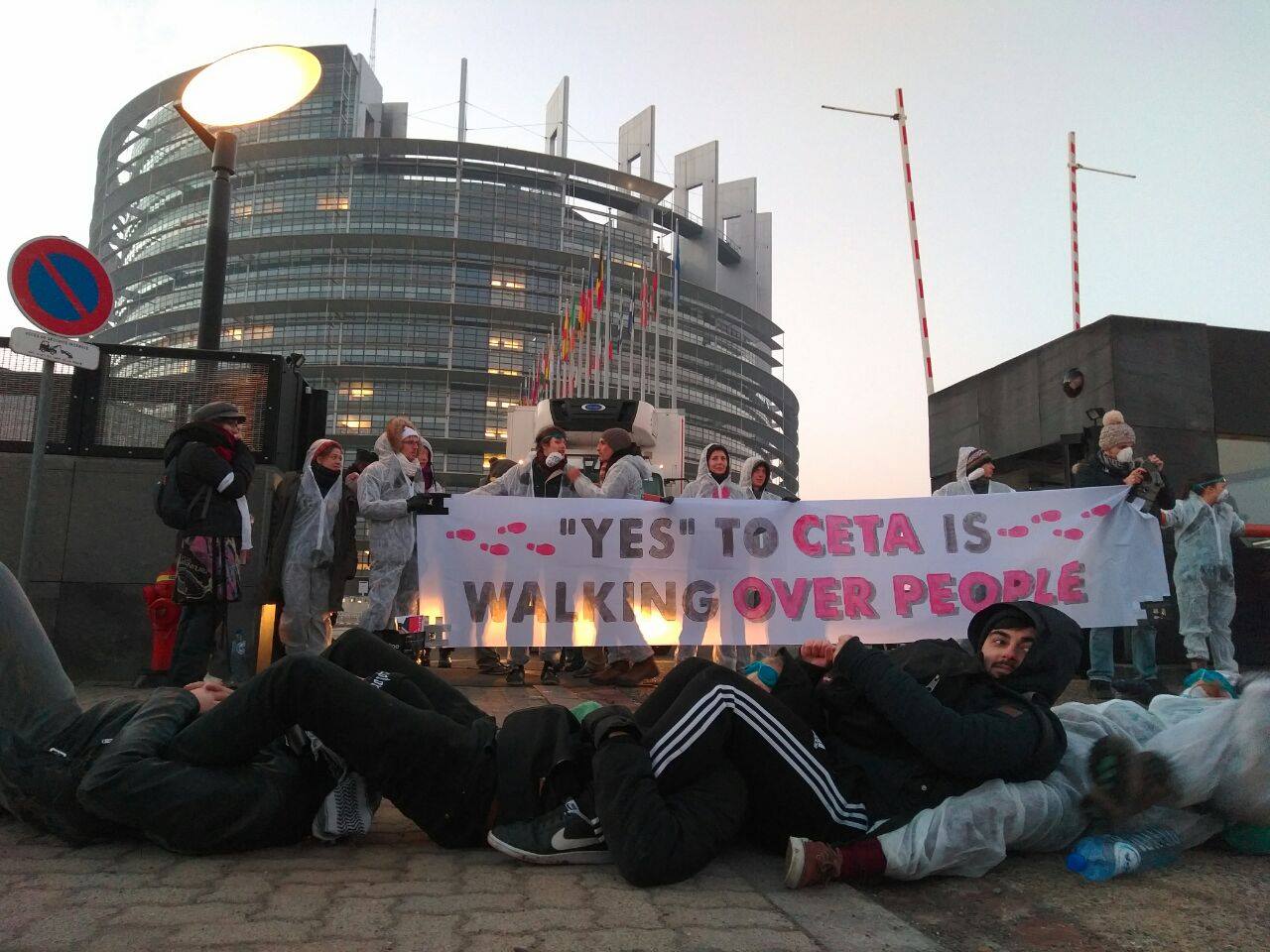
Med 408 mot 254 stemmer har EU-parlamentet vedtatt handelsavtalen CETA mellom Canada og EU. Nå skal den stemmes over i hvert medlemsland. Men allerede nå har store deler av avtalen trådt i kraft.
For første gang i EUs historie er EU-parlamentet delt i handelspolitikken. CETA-tilhengerne har forsøkt å gjøre avstemmingen til et valg mellom Donald Trump og den «kjekke statsministeren» til Canada, Justin Trudeau: «When it comes to trade, we’re choosing Trudeau over Trump». Saksordføreren Artis Pabriks fra de konservative i Latvia avfeide kritikerne av CETA-avtalen som «alternative fakta«.
Ved å signere CETA med Canadas statsminister Justin Trudeau jobber de ikke mot Donald Trump, de hjelper ham. Tilhengerne av handelsavtalene vil ha mer av det samme som fører til politikerforakt, svakere demokrati og mer selskapsmakt. Europeisk og amerikansk høyrepopulisme blir styrket av eliteprosjekter som CETA-avtalen.
Her er en uttalelse fra det europeiske Attac-nettverket:
CETA: Trudeau versus Trump? Or Corporate rights vs. Human Rights?
MEPs have repeatedly told us that they want to support CETA as a defence against Trump’s attempts to rip up the multilateral trade regime. Surely a trade deal with Canada, which shares so many of our values, can help provide a bulwark against the destructiveness of Trump?
This ignores the facts. First CETA would open us up to direct challenge by US corporations – some 38,000 of them because so many US corporations have a base in Canada. The changes to the infamous corporate court system won’t stop European countries being sued for a range of public policy decisions from environmental protection to anti-smoking bans. Some of these corporations are Trump’s own companies! So it could help him directly.
Second, it doesn’t matter how much we share with Canadians – this isn’t about people but about corporate interests. It’s about changing our values. And Canadian corporations are quick to sue governments, as indeed is any corporation wherever and whenever they think that some regulation is a threat to their return on investment. Last year Canadian company Transcanada used the ISDS mechanism under NAFTA to sue the US government for $15 billion after President Obama rejected the Keystone XL pipeline. CETA also contains a Regulatory Cooperation Forum which further boosts corporate influence over our laws. CETA, TTIP, TISA and the rest are about creating a society where big business has more power over democracy not about reinforcing European or Canadian values.
Most important still: we have to be aware that Trump did not come from nowhere. His poison seeps through the million cracks in our broken global economy – marginalised communities, the disempowered, unemployed and forgotten. The idea that trade deals create no losers is totally discredited. CETA, like its predecessors, assumes everything is ‘win-win’ and makes no provision for these losers (even though all serious assessments warn that there will be many – over 200,000 jobs lost in one assessment). More of the same doesn’t fight Trump – it feeds him and his ilk.
How do we fight Trump? By showing that the solution to devastating corporate trade pacts isn’t ‘beggar my neighbour’ economics, but a trade system based on the needs of society – building public services, creating decent jobs, laws and regulations to constrain the most powerful and prevent them from exploiting labourers. Without this, Trumpism will grow.
A first step is for the European Parliament NOT to validate the CETA on 15 February.
